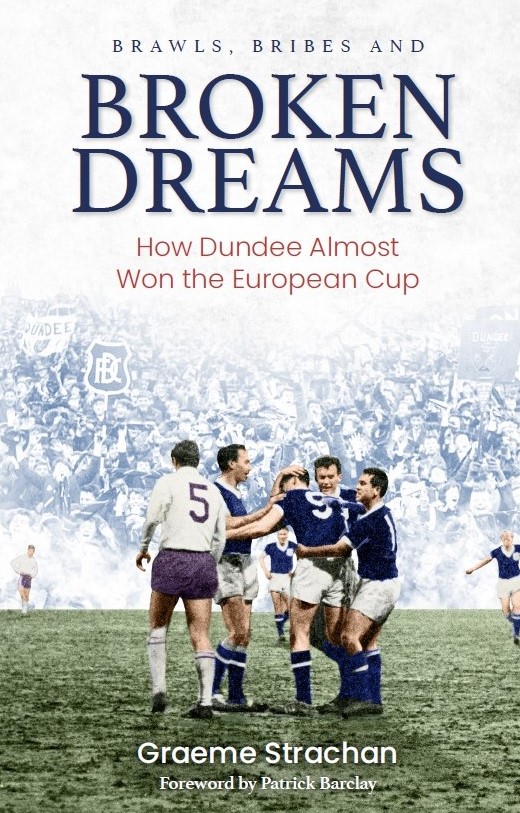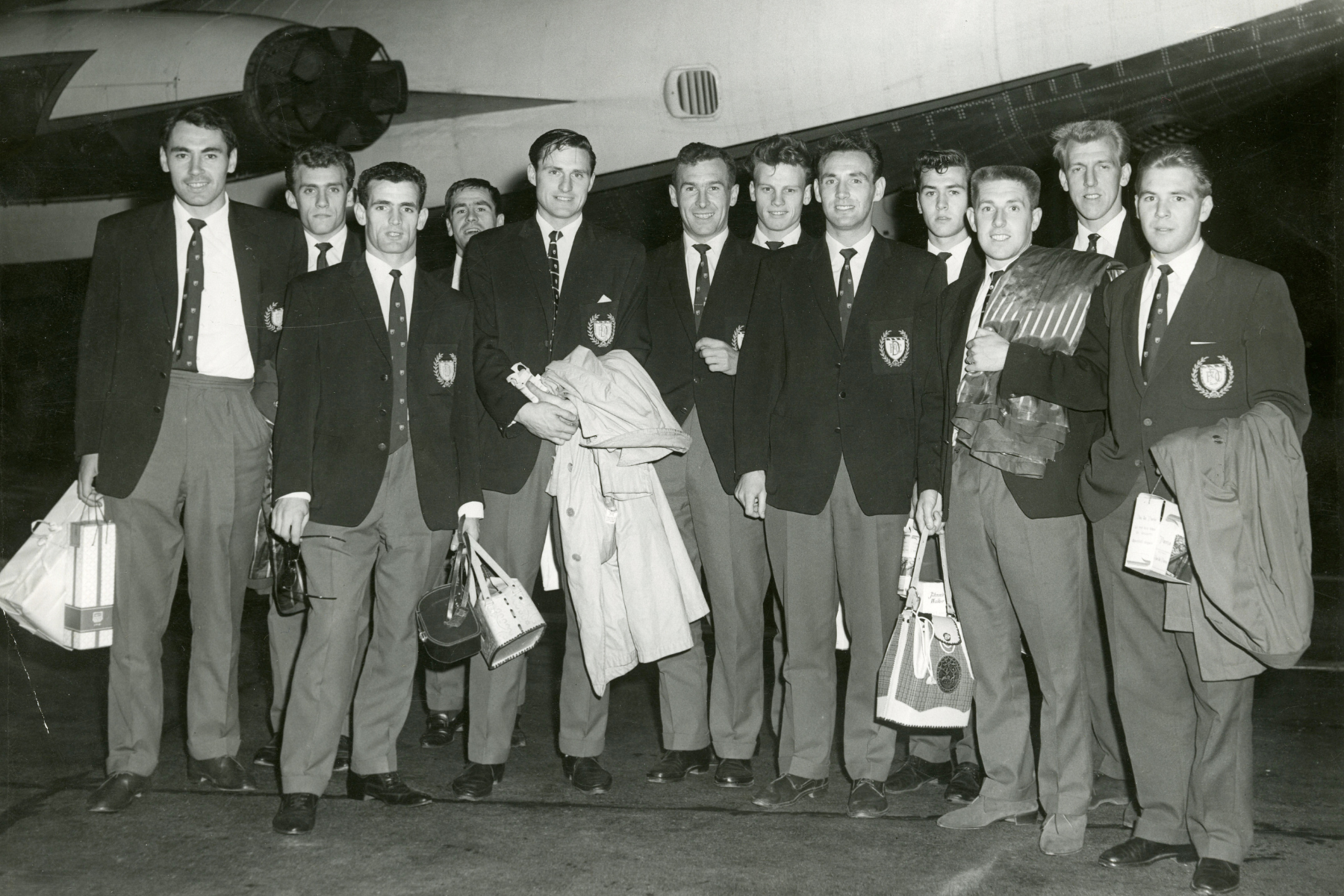
CELTIC supporters are rightly proud of the fact the Parkhead club were the first British winners of the European Cup back in 1967.
Aston Villa, Chelsea, Liverpool, Manchester United and Nottingham Forest may well have achieved the feat since and the Stamford Bridge, Anfield, Old Trafford and City Ground outfits might have prevailed on more than one occasion.
When Jock Stein’s team defeated Inter Milan 2-1 in the Estadio Nacional in Portugal 55 years ago, though, no team from these islands had been kings of the continent. The Lisbon Lions, as they became known, blazed a trail for those who followed.
But would Dundee have lifted the iconic trophy four years before their Scottish rivals if they had not fallen victim to a crooked referee?
The Dens Park side which won the First Division in 1962 was once dubbed “better than the Lisbon Lions” by no less a judge than Bob Crampsey, the historian, author and broadcaster who was once crowned Brain of Britain.
Their performances in the European Cup the following season showed that Crampsey was not exaggerating.
The team assembled by Bob Shankly, the brother of legendary Liverpool manager Bill, beat Cologne, Sporting Lisbon and Anderlecht before losing in the semi-final to eventual champions AC Milan in controversial circumstances.
Brawls, Bribes and Broken Dreams, the brilliant book which journalist Graeme Strachan has written to mark the 60th anniversary of Dundee’s incredible run, highlights they were cruelly denied the chance to make history.
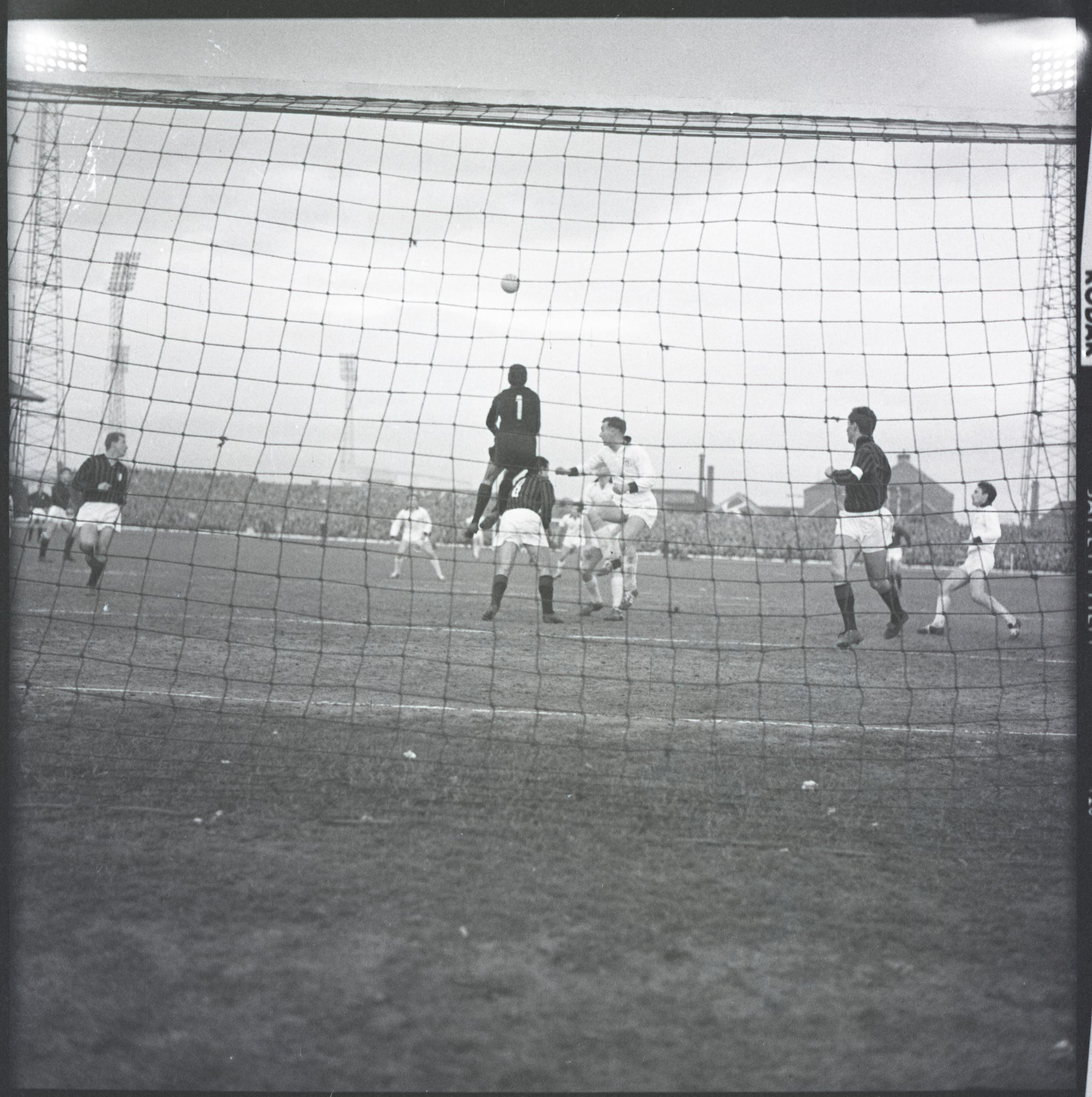
“But for some ill fortune and questionable refereeing, Bob Shankly’s team might have become the first from Britain to win the famous trophy,” said Strachan.
“Who knows what might have been had it not been for a dodgy ref in the semi-final against Milan? What would have happened had that game been played on a level playing field?
“The Spanish whistler from that encounter was ‘found to have accepted extravagant gifts from the Italian club prior to the game’ weeks later and was ‘subsequently banned on various other charges of bribery’.”
Bill Shankly is considered to be one of Scotland’s greatest ever managers for his achievements with Liverpool in the 1960s and 1970s. But his elder sibling was, while an entirely different character to his charismatic and outgoing brother, no less astute or inspirational a coach.
“Bob kept things simple,” said Strachan. “But he was a terrific man manager and was someone who could get the best out of his players.
“Bill was an extrovert, Bob was a quieter figure publicly. But his players would have run through a brick wall for him. He also had the eye for a good signing, Gordon Smith being the perfect example.
“Smith was 37 when he joined Dundee in 1961. He had been pensioned off by Hearts in the summer of following a recurring ankle injury.
“He was known as Scotland’s Stanley Matthews. He was akin to someone like David Beckham with his range of passing and his crossing. Most of the good things that happened during that European Cup campaign came via Smith’s creativity, experience and mastery with the ball.
“But so many others played their part, including former English title winner Bobby Seith, legendary skipper Bobby Cox and pivot Ian Ure. Alan Gilzean also scored goals for fun and was the main man.”
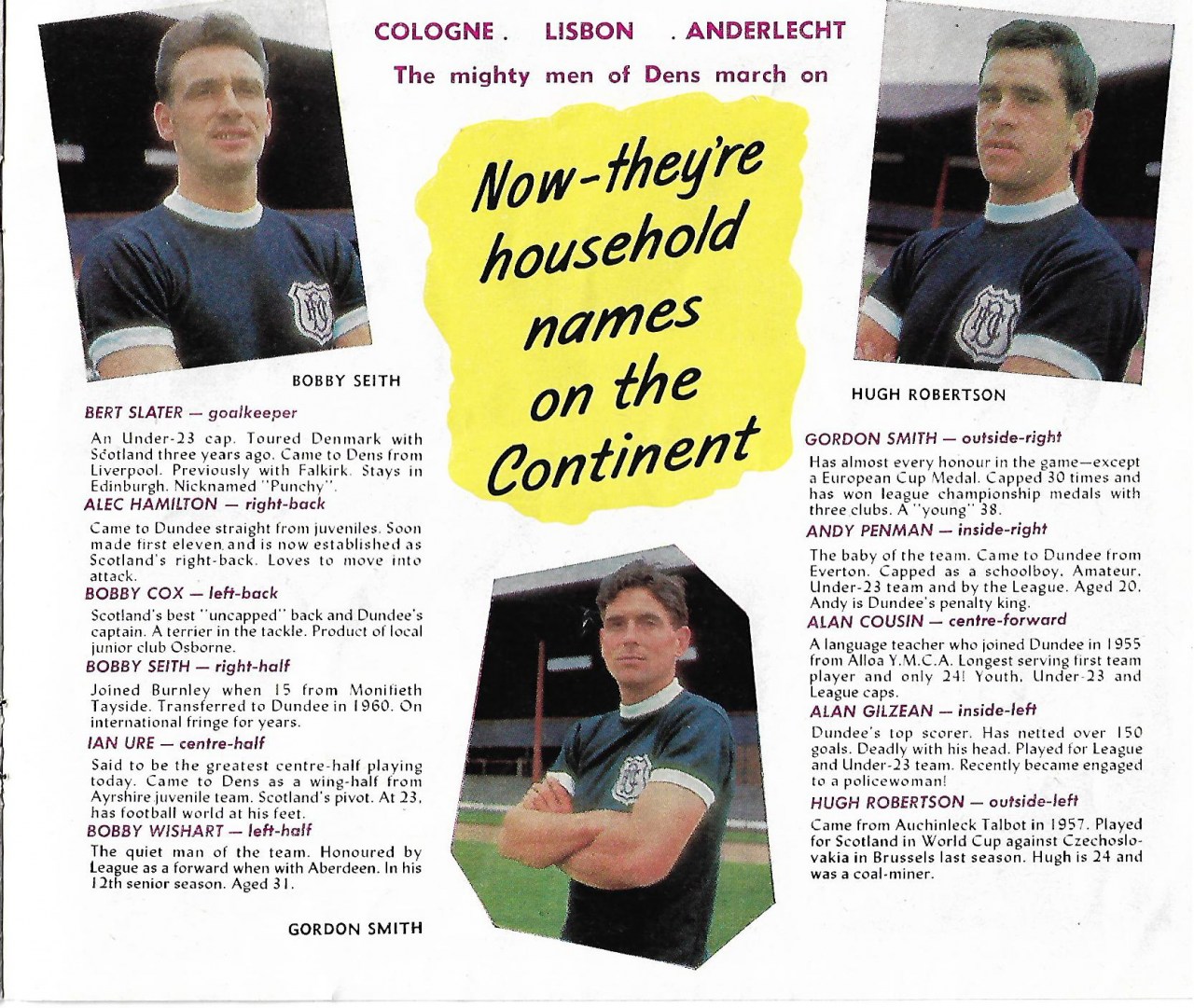
He added: “Dundee had played in a month-long the International Soccer League friendly tournament in New York against sides from West Germany, Brazil, Yugoslavia, Mexico and Italy that summer.
“They were given a lesson in possession football and finished bottom of their group. But it would prove the perfect preparation for the European Cup. Shankly put in place a new counter-attacking style and the team never looked back.”
Dundee got off to quite a start in the preliminary round 60 years ago this week; they stunned continental football when they thrashed West German champions Cologne 8-1 in the first leg at Dens Park.
It remains one of the greatest results by a Scottish side in Europe more than half a century later.
Kenneth Wolstenholme – the BBC commentator famous for his “they think it’s all over” line at the end of the 1966 World Cup final – was in the gantry that evening and told his listeners the Scottish title holders were one of the best sides he had ever seen.
“One of the strongest array of teams which had ever been assembled in a European Cup campaign started the competition,” said Strachan. “There’s an argument it was the strongest. This was a new world of glamour that Dundee were entering.
“Cologne were among the favourites to win the European Cup. They fielded no fewer than 10 West German internationalists, including 1954 World Cup winner Hans Schäfer. But they got hit by a first leg blitzkrieg at Dens Park.
“It was David and Goliath stuff. In modern terms, it would be the equivalent of turning over Bayern Munich with seven goals to spare.”
A 4-0 reverse followed in a bad-tempered second leg match in the Mungersdorfer Stadium three weeks later. But that was enough to secure a place in the first round and a double header with Sporting Lisbon.
A respectable 1-0 defeat in Portugal the following month gave Dundee a good chance of progressing. In the rematch, a game played in front of 30,596-strong crowd at Dens Park, Gilzean bagged a hat-trick as the hosts ran out 4-1 victors.
Shankly’s charges beat Anderlecht of Belgium by an identical scoreline in the Heysel Stadium in the first leg of the quarter-final in March and a 2-1 triumph at home sent them in to a last four with the mighty AC Milan.
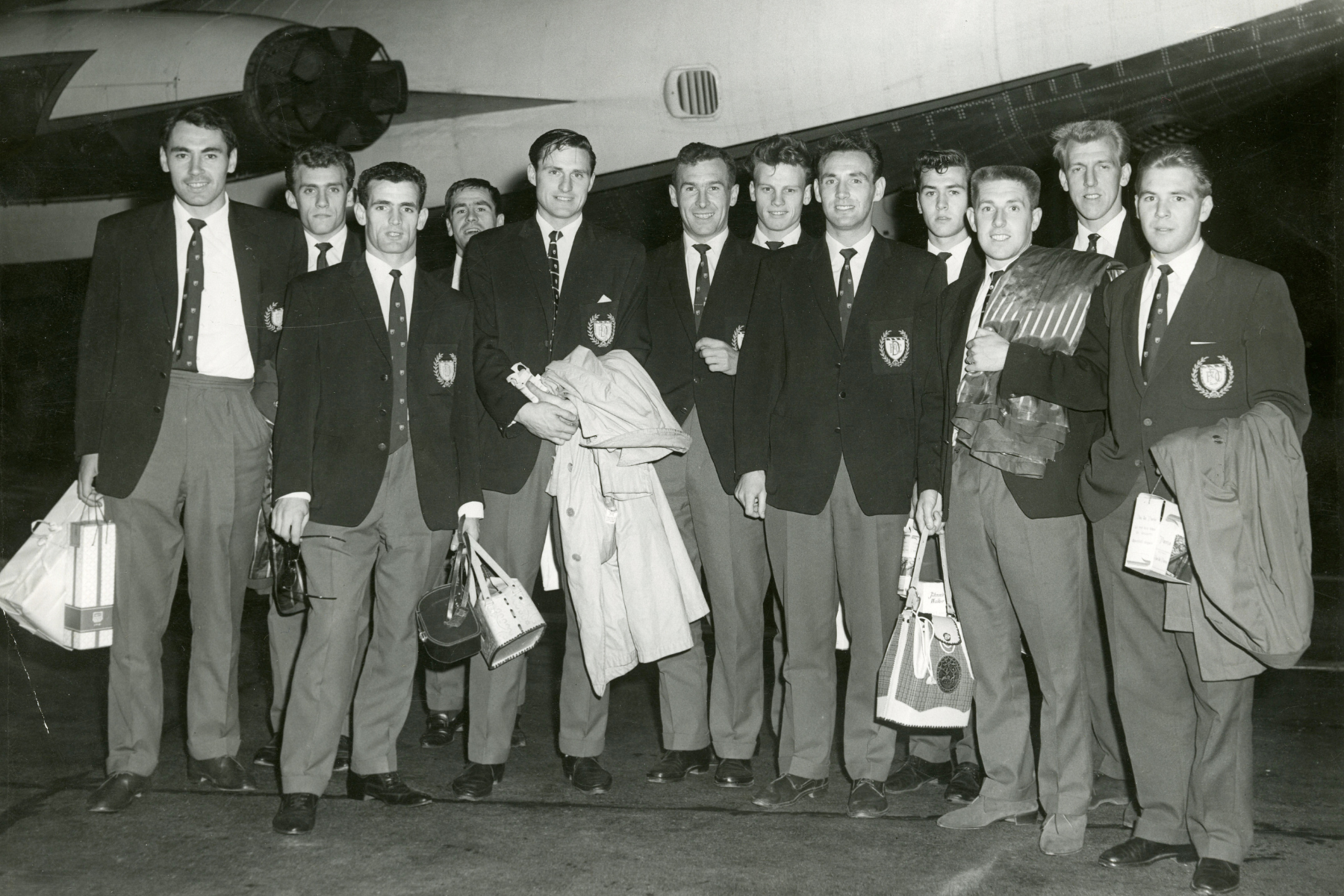
“Milan were a fantastic team,” said Strachan. “Their legendary manager Nereo Rocco was known as the ‘Mad King of Catenaccio’. They featured the likes of Cesare Maldini, Giovanni Trappatoni, Gianni Rivera and Jose Altafini.
“But were the odds already stacked against Dundee when the teams lined up at the San Siro for the first leg? Why were Milan the beneficiaries of what appeared to be seemingly lenient refereeing?”
The performance of the Spanish match official Vicente Caballero in that infamous 5-1 defeat incensed Seith and his team mates. It was no surprise to them when he was later found guilty of corruption.
“The Dundee players were furious,” said Strachan. “It was the only topic of conversation after the match. So many players bemoaned what they saw as unfair refereeing.
“Dundee were pulled back for any physical challenge. The Italians seemed to be allowed to get away with anything. Some of the goals which were allowed to stand were also disputed.
“Sadly, there was no talk of that first result being overturned. It definitely has shades of Marseille/Rangers 1993 about it when Rangers were robbed of a place in a European final in similar circumstances.
“When you look at the scalps Dundee took during that run I think they’d have fancied themselves at Dens for the return leg had the margin not been so high. Sadly, 5-1 was a mountain to climb. They won 1-0, but went out of the competition.”
AC Milan would overcome defending champions Benfica 2-1 in the final at Wembley to win the European Cup for the first time in their history – a result which left the Dundee players wondering what might have been.
“All of the Dundee players were convinced they’d have won the European Cup if they had got to Wembley,” said Strachan. “Why? As his former player Craig Brown said: ‘Because Shankly said so!’”
Brawls, Bribes and Broken Dreams: How Dundee Almost Won The European Cup by Graeme Strachan is published by Pitch Publishing.
